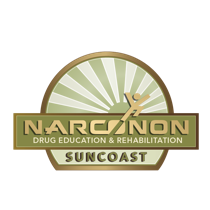Methadone:
Signs and Symptoms of Abuse…#3 in a 3 Part Series on Methadone

Like any other drug, methadone is used and abused by addicts trying to get high. Methadone has been used for many years as a “detox” drug to get addicts off of heroin and other opiates. Unfortunately, the old adage “A drug is a drug is a drug” certainly applies.
It’s like saying:
“Well see this fire here…this fire burned me so I think the best solution is more fire.”
That doesn’t make too much sense. You can’t use drugs to combat drugs. It’s not a workable solution.
The fact of the matter is that methadone does nothing to handle an addiction, prevent further abuse of drugs, or reduce criminality. It’s like a hamster running on a wheel not going anywhere fast.
I have personally been riding the bus after it picked up a bunch of “patients” from a local methadone clinic and, in sheer amazement, I watched some of them comfortably “nod” out while the others were a talkative and happy bunch of drug addicts living off the welfare system.
If it quacks like a duck, it’s a duck. Methadone is a narcotic drug. It’s not necessarily a “safer” alternative to heroin either. It’s just a government controlled and funded substance used to prevent addicts from consuming street-bought heroin. Plain and simple. It’s a very profitable racket.
Ignorance is Bliss?
While some families rest soundly at night knowing their loved one is taking methadone instead of heroin, another family down the street is wondering why Little Jimmy is passed out face first in the mashed potatoes. Recently there has been a growing number of individuals who are using primarily methadone as their drug of choice. That’s why a lot of methadone addicts are able to trade their doses for heroin on the street. Some people prefer methadone over heroin and some people would rather have heroin. Personal preference I suppose…
Symptoms of Abuse
Like common opiates, methadone abuse can have almost no symptoms at first. A person can appear to be functioning quite normally for a while. You may notice the person has a lot more energy and is extremely talkative, constantly chatting about nothing of any importance.
“Yes, Johnny, the wallpaper is very nice…”
Methadone causes pupil constriction, reducing it to a pin-point even in low lighting. You may find your loved one scratching mercilessly at their skin, causing scabs, scars and bleeding.
As the addiction progresses, a person requires a greater and greater dose of methadone to get high. Under the influence of higher doses of methadone, the person may feel sedated and “nod off” in the middle of a conversation, meal, class, etc.
“Stop dad, I’m just really tired.”
“I haven’t been sleeping well lately because I’ve been working really hard.”
This is also due to the fact that opiates disrupt the normal sleep cycle. Taking large amounts of opiates does not allow a person to fall into a restorative sleep pattern, causing extreme daytime drowsiness.
You may also notice a person’s behavior change drastically. A once responsible and productive person now is regularly late for work or loses their job all together, has past due bills and no money.
“Mom I need money for my electric bill…my cat got sick so I had to use the money for the vet bill.”
Many of their personal items are “missing” and tragedy and crisis situations follow them wherever they go.
“She got in ANOTHER car accident???”
“Where is that PlayStation we bought you?”
“Honey, have you seen my diamond ring?”
Nausea, vomiting, weight-loss and severe constipation are also signs and symptoms of methadone abuse. Scariest of all, high doses of methadone can cause shallow breathing and respiratory depression which may result in death.
Knowing the symptoms of methadone use and abuse can mean the difference between the life and death of a loved one. If you suspect someone you care for is abusing methadone, don’t wait, call Narconon Suncoast today.
